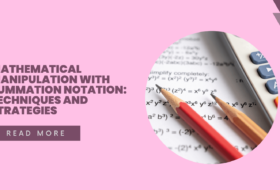Educational research focuses on empirical approaches to problem-solving in education. It uses systematic investigation to determine causes and effects in education. It employs clearly defined scientific methods to collect and analyze data for the purpose of problem-solving and advancement of knowledge.
When teaching educational research and learning in schools, different teaching methods are employed. Each method has its benefits for learners and teachers.
In this article, we shall evaluate educational research and the steps to carry out educational research in different institutions.
Table of Contents
What is Research?
Research is defined as “creative and methodical activity done to improve the body of knowledge.” It entails gathering, organizing, and analyzing data to better understand a subject and is distinguished by a focus on minimizing bias and error causes. These tasks are distinguished by taking biases into account and adjusting for them.
A research project might build on prior contributions to the field. To test the validity of instruments, procedures, or experiments, research may replicate elements of prior projects or the project as a whole.
Using scientific methods, research is the careful consideration of a specific issue or concern. “Research is a systematic inquiry to describe, explain, predict, and control the observed phenomenon,” states American sociologist Earl Robert Babbie. Both inductive and deductive methods are used.
Using scientific methods, research is the careful consideration of a specific issue or concern. “Research is a systematic inquiry to describe, explain, predict, and control the observed phenomenon,” states American sociologist Earl Robert Babbie. Both inductive and deductive methods are used.
Deductive methods verify an observed event, whereas inductive methods analyze it. Deductive methods are more frequently associated with quantitative analysis, whereas inductive approaches are associated with qualitative research.
What is Sociology?
Sociology is a social science that focuses on society, human social behavior, social interaction patterns, and aspects of daily life-related culture.[1] It is the study of human social institutions and relationships.
The study of sociology covers a wide range of topics, from criminal behavior to religion, the family to the state, racial and social class divisions to common cultural beliefs, and social stability to radical change in entire societies. Understanding how human action and consciousness both shape and are shaped by surrounding cultural and social structures is the goal of sociology, which seeks to unify the study of these diverse subjects.
The study of sociology, which looks at and explains important issues in our communities, our personal lives, and the world, is an exciting and fascinating field of study. Sociology examines the social causes and effects of romantic love, racial and gender identity, family conflict, deviant behavior, aging, and religious faith on a personal level.
Sociology looks at and explains things like law and order, poverty and wealth, prejudice and discrimination, schools and education, businesses, urban communities, and social movements at the societal level.[2] Sociology studies global phenomena like population growth and migration, war and peace, economic development, and so on.
To improve and deepen our comprehension of important social processes, sociologists place a strong emphasis on the careful collection and evaluation of evidence regarding social life. Sociologists employ a wide range of research techniques.
Sociologists study group interactions captured on video, conduct large-scale surveys, interpret historical documents, examine census data, interview group members, and carry out laboratory experiments.[3] Sociology’s research methods and theories provide powerful insights into the social processes that shape human lives, as well as current social issues and prospects. We gain a deeper comprehension of these social processes as well as the forces that influence our own personal experiences and outcomes.
Sociology makes use of diverse techniques for empirical research and critical analysis.[4] While some sociologists perform studies that can be used to improve social welfare and policy, others place a greater emphasis on improving our theoretical understanding of social dynamics. The focus might range from macro-level assessments of society to micro-level investigations of individual interaction and agency.
The social world in which we live and the forces that shape our lives can be seen and understood uniquely and insightfully through sociology. To provide deeper, more illuminating, and more challenging understandings of social life, sociology looks beyond conventional, taken-for-granted views of reality.
Sociology is a discipline that broadens our awareness and analyzes the human social relationships, cultures, and institutions that profoundly shape our lives and human history through its particular analytical perspective, social theories, and research methods.
What do you understand by the sociology of education?
The sociology of education examines how social structures and personal circumstances impact education and its results. The majority of its focus is on the public education systems seen in contemporary industrial cultures, particularly the growth of higher, further, adult, and continuing education.
The topic or area of study known as the sociology of education is concerned with society’s educational institutions and all other elements associated with them. The academic discipline known as the sociology of education “examines how people’s experiences affect their educational success and results,” according to another definition (Williams, 2011)[5].
The topic is “primarily concerned with education, and particularly the mass schooling systems of modern industrial societies, including the extension of higher, further, adult, and continuing education,” according to Scott (2014)[6].
In layman’s terms, the field explores education as a social institution and investigates its duties, functions, and other behaviors in relation to a larger social environment, as well as how it both influences and is influenced by individuals. It emphasizes the value of education within various cultural and other social groups and evaluates personal circumstances (including economic, political, etc.) that may have an impact on an individual’s ability to receive an education. Modules or curricula, testing procedures (like standardized testing), etc. are some subjects that are covered in the field.
The study of the interaction between society and education is known as the sociology of education. The study of how individual experiences and governmental structures might impact education and its results is referred to as the sociology of education. It is about the public education system in contemporary, industrialized societies. It also covers the growth of adult, higher, and continuing education. Known as the “Father of Sociology,” Auguste Comte.
The sociology of education attempts to investigate the influences that social factors have on schools and people, to learn about democratic beliefs, to assist in developing a curriculum that best suit each student’s needs and promotes personality development, etc.
The hopes for improving and advancing learning are a crucial, positive, and essential goal of the sociology of education. It is a way to raise educational standards and therefore assist the younger generation in leading lives of higher quality.
What is educational research?
Education research is a broad field that focuses on many different areas of knowledge; thus, it draws from a variety of disciplines. As a result, the research’s conclusions are multi-dimensional and subject to limitations based on the traits of the participants and the research environment.
According to J. W. Best, educational research is any activity that aims to develop a science of behavior in educational settings. The ultimate goal of such a science is to provide the educator with the knowledge necessary to accomplish his objectives in the most efficient ways.
The systematic collection and analysis of educational-related data are referred to as educational research. Learning by students, teaching methods, teacher education, classroom dynamics, and a variety of other aspects of education are all possible topics for research.
Instructive scientists by and large concur that exploration ought to be thorough and efficient. In any case, there is less arrangement of unambiguous principles, models, and examination systems. As a result, educational research’s value and quality have been questioned.
The primary goal of educational research is to improve teaching and learning practices while also adding to the existing body of knowledge by finding solutions to a variety of pedagogical issues. Additionally, educational researchers are looking for answers to concerns regarding classroom management, learner motivation, and development.
What Steps Should Be Taken When Carrying Out Educational Research?
Before starting to acquire, master, and develop your skills in the numerous approaches for carrying out the activities that each phase is defined by, it is essential that you, as an educational researcher, have a firm understanding of the major steps involved in the research process.

Step 1: Define the research problem
The procedure begins with identifying an issue or formulating a research topic. An educational research issue may have its roots in a research report, personal experience, textbooks, etc.
Step 2: Examine previous work in the area of your investigation.
The review of the literature is the next step in the research process. The researcher must now learn more about the subject under examination after identifying the issue.
To do this, you should survey the writing (compositions of perceived specialists) connected with the exploration issue. This involved looking over concepts and theories as well as the results of previous research. Additionally, the purpose of the literature review is to provide useful recommendations for significant investigations and to eliminate redundant work.
Step 3: Form your hypothesis and/or research questions
The statement of the hypotheses and/or research questions is what brings the research study to the data collection stage. By stating the study’s hypotheses, you can better understand the issue and the reasoning behind the investigation.
Step 4: Create your research design or plan
A research design is a plan for carrying out the research. It clarifies who, what, why, when, and how the investigation was conducted. To put it another way, the design describes the subjects, the methods for data analysis, the instruments used to collect the data, and the procedures for doing so. All the more critically, it ought to be adaptable to ingest changes achieved in research during the execution.
Step 5: Implement the research plan by collecting data
Data collection and organization are how the research plan can be carried out. To provide the data required to test the hypothesis or respond to the research question, this step is crucial. A questionnaire, observations, the use of the literature, and other methods can all be used to gather data.
Step 6: Analysis of the research data
To test the hypotheses inferentially or provide a descriptive response to the research question, analysis of the collected research data is required. In point of fact, this crucial aspect is the culmination of all of your research time, effort, and resources.
The consequences of your information examination are summed up in a way straightforwardly connected with speculations or exploration questions. Even if you don’t know much about statistics or math, this guide will teach you how to use SPSS to analyze statistical data, which is an important and useful skill.
Step 7: Interpret and present the findings in your thesis
After the data analysis is complete, the results are interpreted and generalizations are drawn based on research questions, hypotheses, and a review of the relevant literature. After that, you can draw the implications for practice and future research that acknowledge your research’s limitations.
In conclusion, if the research is carried out correctly and according to plan, the problem should be solved and the research questions should be answered.
Conclusion
Educational research is a systematic way of gathering and analyzing data and information to improve existing knowledge.
It is carried out by students and teachers. For students, it is usually required to gain an educational award, say, B.A., B.Sc., etc. For teachers (lecturers, etc), it is usually required to gain mastery of the subject matter.
Whether you are a teacher or student, there are steps to successfully carry out research. This article discussed these steps in detail. I will now leave you to share your views on research methodology using the comment box below.
[1] Ashley, David; Orenstein, David M. (2005). Sociological Theory: Classical Statements (6 ed.). Boston: Pearson Education.
[2] Floud, J., Halsey, A. H. and Martin, F. (1956) Social class and educational opportunity: Heinemann.
[3] Macy, Michael W.; Willer, Robert (2002). “From Factors to Actors: Computational Sociology and Agent-Based Modeling”. Annual Review of Sociology. 28: 143–66.
[4] Giddens, Anthony, Duneier, Mitchell, Applebaum, Richard. (2007). Introduction to Sociology. Sixth Edition. New York: W.W. Norton and Company.
[5] Williams, S. M. (2011). Sociology of education. Education. https://doi.org/10.1093/obo/9780199756810-0065
[6] Scott, J. (2014). A dictionary of sociology (4th ed.). Oxford University Press.




